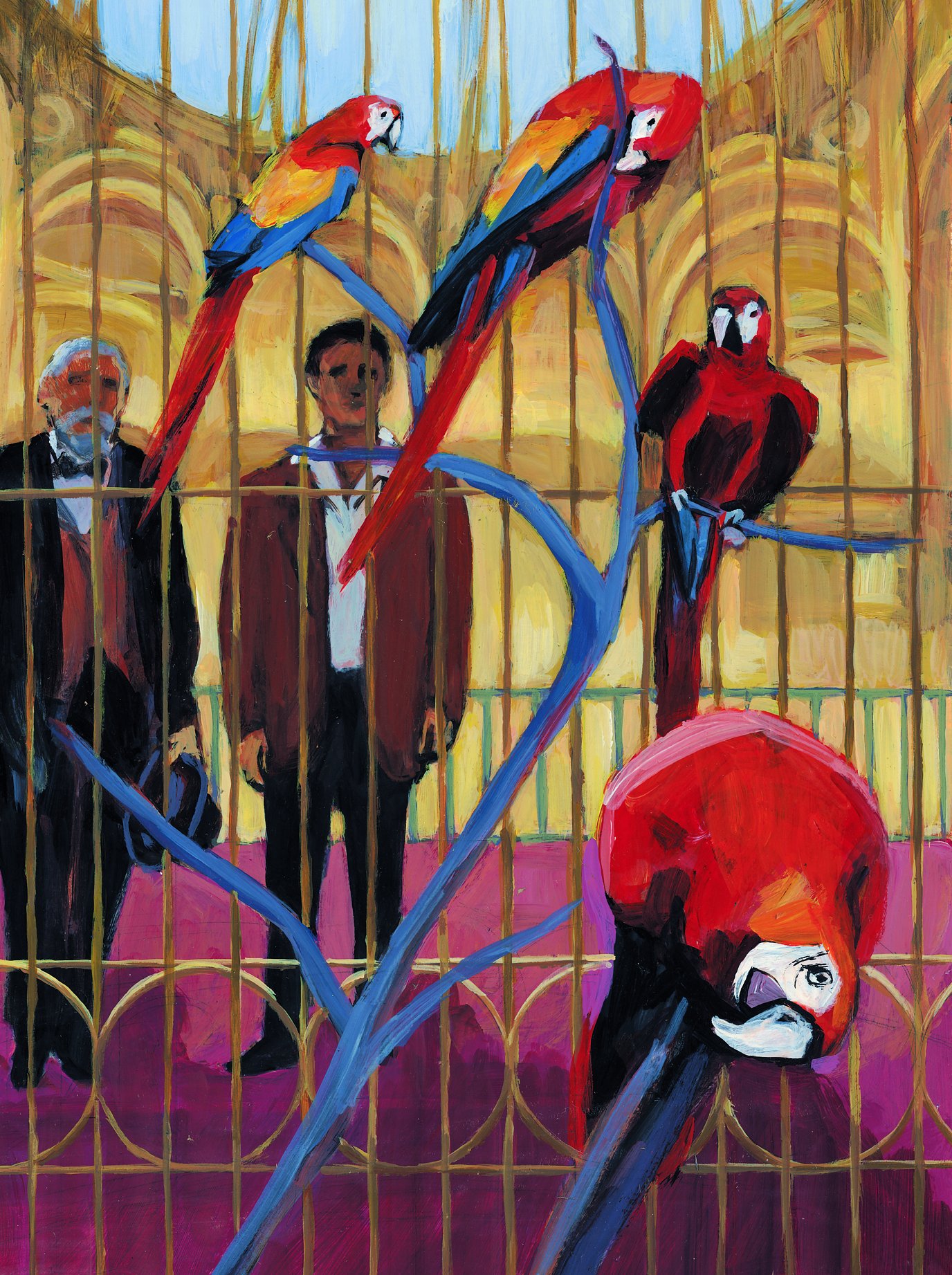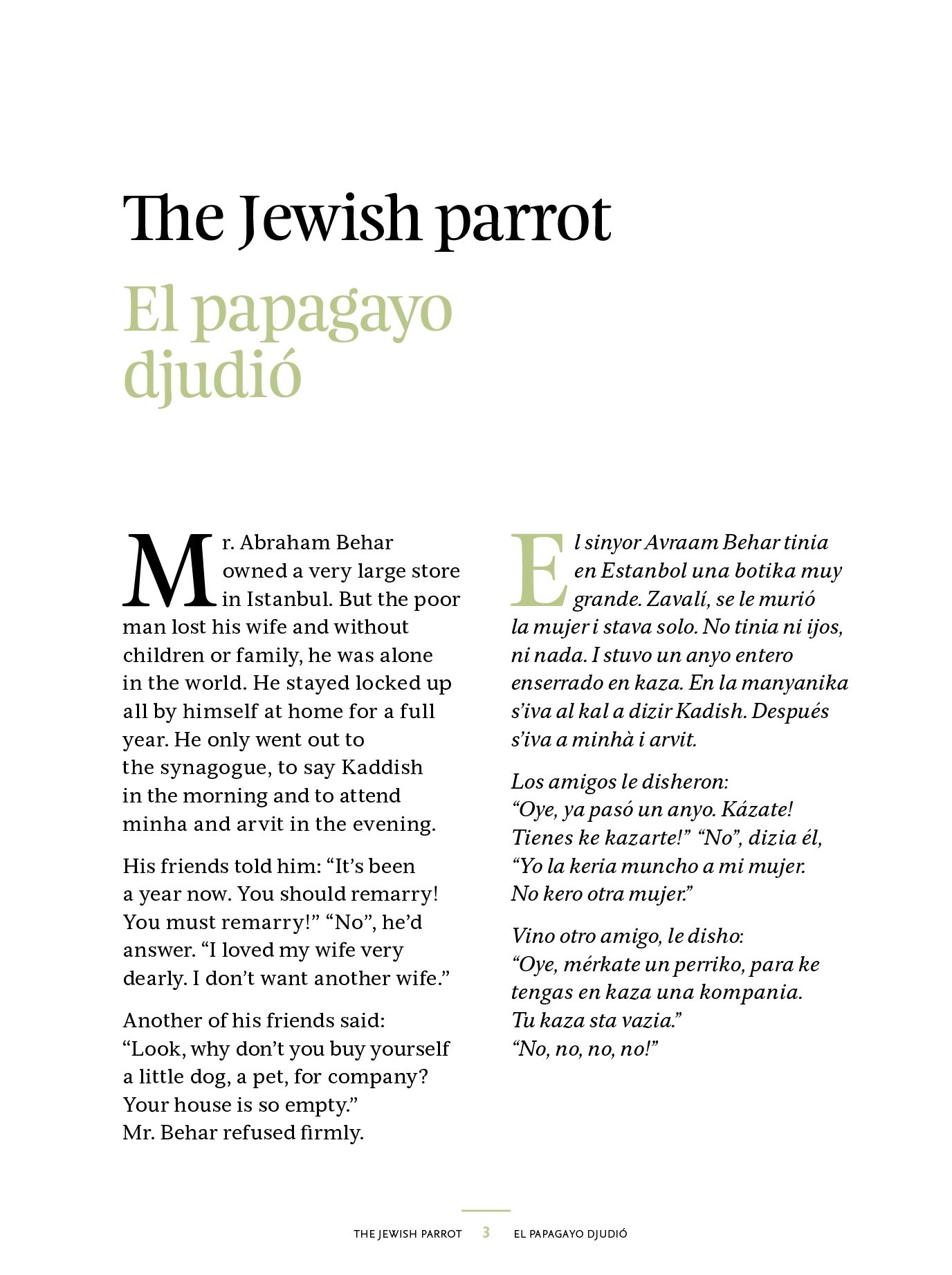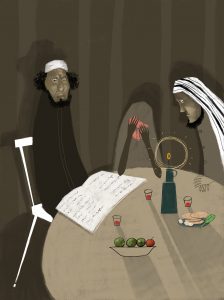

Ladino Day 2018: Jewish Folktales of the Mediterranean
Wednesday, December 5, 2018, 8:00 pm PST - 9:30 pm PST

Illustration by Aude Samama (2014)

Ladino Day 2018 will showcase a creative initiative to bring Ladino (Judeo-Spanish) traditions to future generations.
Paris-based author François Azar will discuss his two new collections of Sephardic folktales, “The Jewish Parrot” and “Bewitched by Solika” — written in both Ladino and English — and the significance of storytelling and art in Sephardic culture. Through live performance, members of Seattle’s “Ladineros” Ladino-speaking group will help to bring several of these classic tales to life.
* Watch the full video of Ladino Day 2018 now *
About Judeo-Spanish Tales
Judeo-Spanish tales transmit the wisdom and humor of Sephardic Jews, Jews who originated in the Iberian peninsula (present-day Spain) and who settled all around the Mediterranean, particularly in the Balkans, Turkey and northern Morocco. Sephardic Jews adapted their neighbors’ tales and legends to their own culture, while also crafting original stories set in their new environments.
Tales were transmitted orally within families, providing entertainment, relief from everyday worries, and a way to laugh off human weaknesses. Through these tales, essential elements of Jewish and universal life are transmitted in a lively, imaginative way. The tales collected in “The Jewish Parrot” and “Bewitched by Solika” are presented in both English and Judeo-Spanish (Ladino), a language based in old Castilian that has been enriched by borrowed elements of Turkish, Greek, Hebrew, Arabic, Italian, Portuguese and French.
About the Speaker
François Azar is the vice president of the Judeo-Spanish society Aki Estamos – Les Amis de la Lettre Sépharade and the founder of Lior Press in Paris, France.
Read a profile of François Azar, and learn more about his Ladino publishing initiative and his connection to Ladino folktales:
Register for the Event
This event is made possible through the generosity of the Lucie Benveniste Kavesh Endowed Fund for Sephardic Studies, and is cosponsored by Congregation Sephardic Bikur Holim, Congregation Ezra Bessaroth, Seattle Sephardic Network, the Departments of Spanish and Portuguese Studies, French and Italian Studies, and Linguistics; and the Turkish & Ottoman Studies Program in the Department of Near Eastern Languages and Civilizations.

